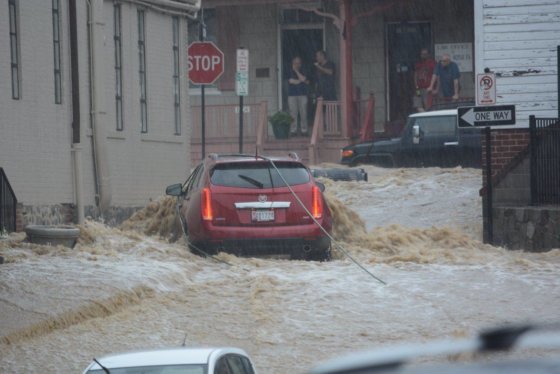Howard County, Maryland, has picked a plan to protect Ellicott City from the kind of flooding that swept through it twice in recent years.
With a price tag estimated at between $113 million and $140 million, it’s among the priciest of the options, but County Executive Calvin Ball said it’s worth the money for a long-term solution.
“We will no longer rent a temporary solution; we will buy a permanent one,” Ball said.
In 2016 and 2018, Ellicott City was left devastated by deadly floods that tore through its historic main street. Since then, the county has struggled to develop a plan which would prevent a similar scenario in the future.
The selection was one of several plans the county executive announced he would choose from, and among the biggest changes it will bring is a 15-foot tunnel to carry stormwater under the city along the north side of Main Street.
“The tunnel provides a way to carry all that overflow without being as destructive,” said Marc DeLuca, the deputy director of public works.
The plan also includes the construction of several large retention ponds, some up to 70 acres, to hold stormwater. The county will also install two 10-foot diameter pipes that will run under Maryland Avenue and connect the Tiber Hudson to the Patapsco River.
“During a 100-year storm, the previous plan left 4.5 feet of water on lower Main. Our plan will decrease that to less than a foot,” Ball said.
Earlier flood mitigation plans called for the demolition of 10 buildings in the historic downtown; this plan calls for four businesses to be purchased by the county and destroyed.
Ball said the Army Corps of Engineers will review the plan, and work to implement it will begin next year. The goal is to have the work completed in five years.
“That’s an ambitious, best-case scenario,” Ball said.
Only one of the options, one that called for two tunnels, would have cost more than what was selected. The plan is not cheap, but Ball believes ultimately it will be the most cost-efficient.
“Frankly, our plan costs less than rebuilding, repeated times, after storms,” Ball said.









